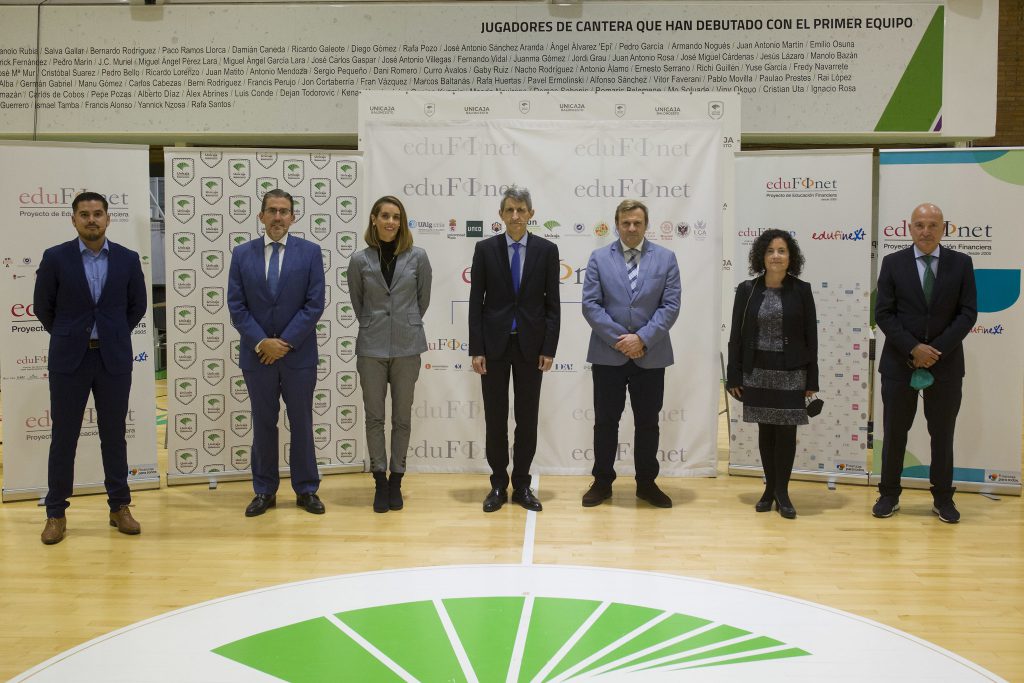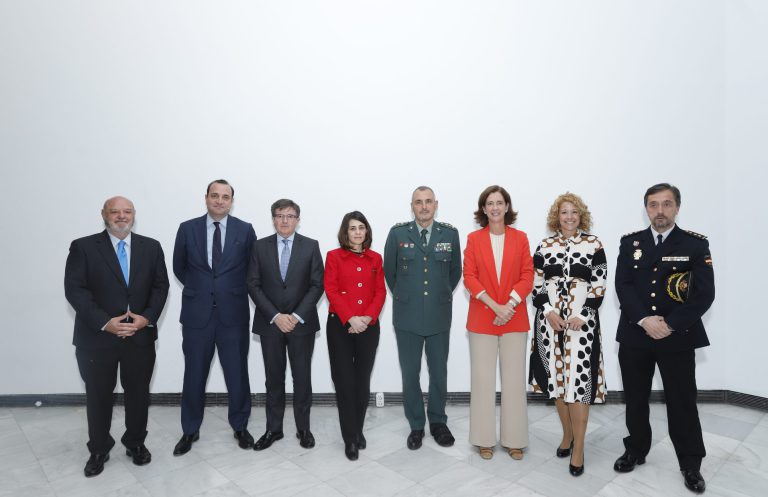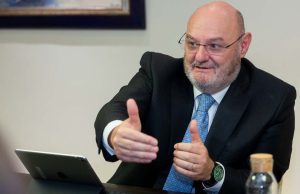Although they may avoid thinking about it, every athlete is or should be aware that their career does not last forever, and therefore, neither does their sporting income, so it is always critical to have a plan B and, of course, to learn how to manage what is obtained with plan A. In order to vindicate the importance of financial education for athletes, the Edufinet Project, promoted by Unicaja Banco and the Fundación Unicaja and CECA, welcomed to Los Guindos this Tuesday a luxury ambassador, a legend of Spanish sport who is still active, a voice with the authority to make people understand the relevance of financial education. And not only on the edge of retirement, but also during one's career. The captain of the Spanish synchronised swimming team, two-time Olympian, world champion with the best record in the history of this sport in Spain - and also a mother -, Ona Carbonell spoke to SUR to explain this project.
It is and always will be one of the great unknowns in the life of an athlete. What happens after retirement? In her case, she temporarily hung up the towel in her quest to become a mother and then returned at the Olympic Games, but I imagine that, like everyone else, she also thought: 'And now what?'
Of course I did. In my first talks with CECA, having been an ambassador for the project for a year now, we saw that there is an absence of financial education in the world of sport. At the end of the day, we live in our own bubble, we train long hours and nobody teaches us how to manage our finances and I believe that this is essential. We have many examples of national and international athletes, both in very popular and emerging sports, who have ended up in a very bad way because they did not know how to manage their finances. It is very important to try to learn a little and to acquire at least minimal knowledge while you are still active, so that you can then manage your retirement well.
Do you know people close to you who have been caught between a rock and a hard place as you just described?
Yes, many, very many, people close to me and even NBA greats, who have lost everything, who have not managed their finances well and have ended up very badly... Sport comes to an end at a very early age, you retire very early and after having devoted your life to sport I think it is essential to have some peace of mind for a while. Together with CECA we are about to launch a project on financial education for athletes, starting from the lowest level.
Would you have appreciated it if someone had shown you how to do this when you were starting out...
I would have been delighted. I am proud that together with CECA we have launched this much-needed project here in Spain. There are surveys that say that people's level of financial education is low, and with regard to athletes, that we live in a bubble... We are a more vulnerable group.
Especially those in minority or emerging sports, as you say, will find it more difficult to manage their savings, as they are much lower than, for example, those of an elite footballer...
Yes, but them too. Even footballers or NBA basketball players. They are very young and suddenly they find themselves with a lot of money and people around them who want to manage it, but it is essential that they know four things, that they know how to manage it while they are still active.
Did you end up having a hard time financially when you retired? Did he feel that anguish at the thought that in a few years you might find yourself in the red?
There are several phases. There is the scholarship and medal side, but I also have the sponsorship and image side, which I have developed significantly, where I have earned a lot more money than winning medals. Unfortunately, this is the case. I have had to turn to people for information.
What you are saying is very sad, that in the end many athletes like you, with an infinite list of achievements, earn more from their sponsors than from sporting prizes...
There are sports and then there are sports. There are sports that generate more money, there are those that do not, but there is a growing tendency for athletes to generate more from their values, from their image, from scholarships and medals. And what we are trying to do with CECA is to make it easier for athletes with online courses and training starting at the most basic level, so that they have options.
In your case, you also studied while training and competing....
Yes, a Fashion Design degree. I have also released five books and I am now working on a documentary. I have always tried to do things, to get out of the bubble, to educate myself. For the athlete to be the best in the world, they also have to get out from under that training, to try to be a better person outside of sport.
What would you say to those athletes who see themselves at the peak of their career right now, with a good income, and therefore believe that they should give up their studies to focus only on sport?
That knowledge is power and that you may be fine now but that sport comes to an end and at a very young age. No matter how well you are doing, it's always good to have something else.
The timing of retirement for a woman takes on an extra complication if she wants to retire at a premature age to become a mother. You, who had a child recently, have you felt that fear of thinking that you would never be the same or that people would never be interested in you again?
It is complicated. There is still a big gap between men's and women's sport in terms of medals, scholarships, salaries... And we are fighting to change this. And work-life balance in this case is not easy. Maybe I would have been a mother before, but you do think: 'Wow, I might not get the same results or my career might be over'. And for me, my best medal was being a mother... But then I was able to return. With difficulties? Yes, but it is possible. Hopefully it will be a little easier in the future.
Without motherhood as an issue, when it comes to retiring from sport, is there also inequality between men and women?
In this sense, I do not think so. We are realising that, as an active athlete, we have to study, have a financial education... Because eventually that day is going to arrive and we have to have everything somewhat prepared. Retirement is not easy for anyone, and even less so for athletes, because sport is very absorbing and suddenly the world comes to an end.













